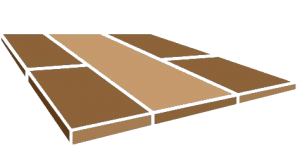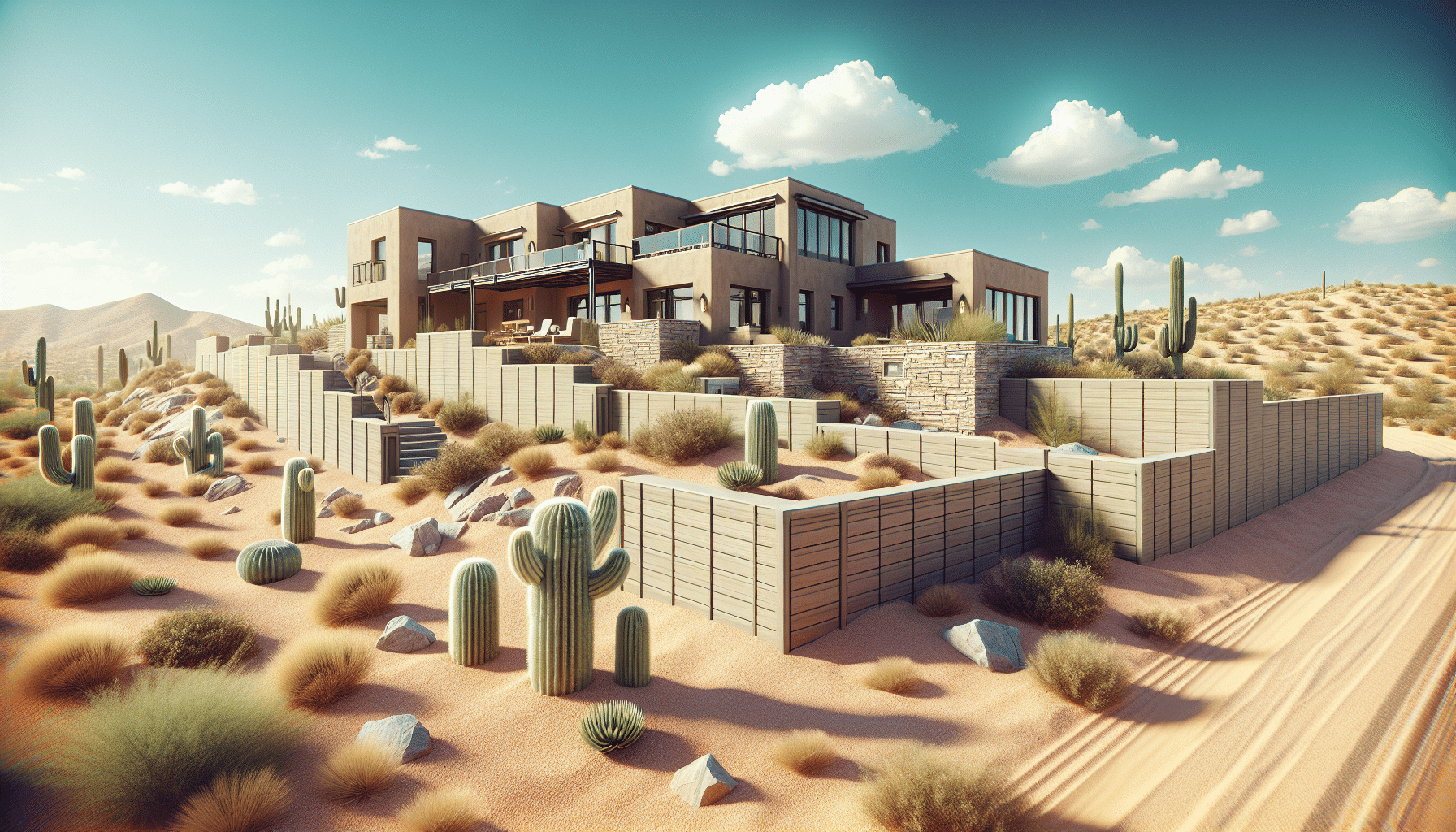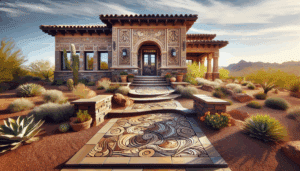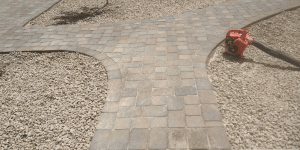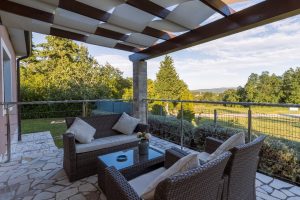As homeowners, we often face the challenge of dealing with sloped landscapes and erosion issues. Retaining walls offer an elegant and practical solution, but choosing the right material can be daunting. At Gilbert Paver Company, we aim to ease your decision-making process by exploring the top materials for constructing retaining walls. This guide will help you understand the benefits and uses of each material.
Contents
Concrete Blocks
Concrete blocks are a popular choice for retaining walls due to their durability and strength. These blocks are known for their long-lasting properties, making them ideal for heavy-duty applications. Plus, they come in various shapes, sizes, and colors, allowing you to customize your wall to match your landscape design.
One of the main advantages of concrete blocks is their ease of installation. They are designed to interlock, providing stability and reducing the need for mortar. This not only speeds up the construction process but also ensures a sturdy and reliable wall.
Natural Stone
Natural stone is another excellent option for retaining walls, offering a timeless and rustic appeal. These stones come in different types, such as limestone, sandstone, and granite, each with its unique characteristics and aesthetic value. Natural stone walls can seamlessly blend with the surrounding landscape, creating a harmonious look.
However, working with natural stone can be challenging and labor-intensive. It requires skilled craftsmanship to fit the stones together correctly, ensuring stability and longevity. But the effort is well worth it, as natural stone walls can last for decades with minimal maintenance.
Brick
Brick is a classic material that has been used in construction for centuries. Its strength and durability make it suitable for retaining walls, especially in residential settings. Bricks are available in various colors and patterns, allowing you to create a visually appealing structure.
Moreover, brick retaining walls are relatively easy to maintain. They are resistant to weather conditions and can withstand wear and tear over time. Plus, if a section of the wall gets damaged, it’s straightforward to replace the affected bricks without dismantling the entire wall.
Timber
For those who prefer a more natural and organic look, timber retaining walls are an excellent choice. Timber is easy to work with and can be a cost-effective solution for smaller projects. It’s ideal for garden beds or low-height walls.
However, timber walls require proper treatment and maintenance to prevent rot and insect damage. With regular care, timber retaining walls can last for many years and add a warm, inviting feel to your landscape.
Gabion Walls
Gabion walls consist of wire cages filled with rocks or other materials, creating a sturdy and flexible structure. These walls are known for their excellent drainage capabilities and are particularly effective in areas prone to erosion.
Additionally, gabion walls can be an environmentally friendly option, as they can be made from recycled materials. Their unique and modern appearance can also serve as an attractive feature in your landscape design.
Poured Concrete
Poured concrete is a versatile material that offers unlimited design possibilities. It can be molded into various shapes and finishes, allowing you to create a custom look for your Retaining Wall. Poured concrete walls are incredibly strong, making them suitable for larger-scale projects.
However, installing poured concrete requires professional expertise and special equipment. While it may be more expensive than other materials, the result is a highly durable and low-maintenance wall that can withstand extreme conditions.
Cinder Blocks
Cinder blocks are an economical and practical choice for retaining walls. They are lightweight yet sturdy, making them easy to handle and install. These blocks are also known for their excellent drainage capabilities, helping to prevent water buildup behind the wall.
Despite their plain appearance, cinder blocks can be enhanced with various finishes or coverings, such as stucco or veneer stone, to achieve a more polished look. They offer a balance between functionality and affordability, making them a popular choice among homeowners.
Dry Stack Stone
Dry stack stone retaining walls are built without mortar, relying on the weight and shape of the stones to hold the structure together. This method creates a unique and natural look, perfect for rustic or cottage-style landscapes.
While dry stack stone walls may not be as strong as mortared walls, they are flexible and can adjust to slight ground movements without cracking. This makes them an excellent choice for areas with unstable soil conditions.
Segmental Retaining Wall Units
- Customization: These units come in various shapes, sizes, and colors, allowing for personalized designs.
- Strength: Made from durable materials like concrete, they provide robust structural support.
- Interlocking System: The units are designed to fit together securely, enhancing the wall’s stability.
- Ease of Installation: The interlocking mechanism simplifies the construction process, making it quicker and more efficient.
- Low Maintenance: Once installed, segmental retaining walls require minimal upkeep, saving time and effort.
Choosing the Right Material
Selecting the appropriate material for your retaining wall depends on several factors, including the purpose of the wall, the terrain, and your personal preference. Consider the height and length of the wall, as well as the soil type and drainage requirements. It’s also essential to think about the overall aesthetic you want to achieve.
At Gilbert Paver Company, we understand that each project is unique. Our team of experts is here to help you make an informed decision, ensuring that your retaining wall not only meets your functional needs but also enhances the beauty of your home.
For personalized advice and professional installation services, Contact Us by phone at 480-534-9680 or Request a Free Quote.
